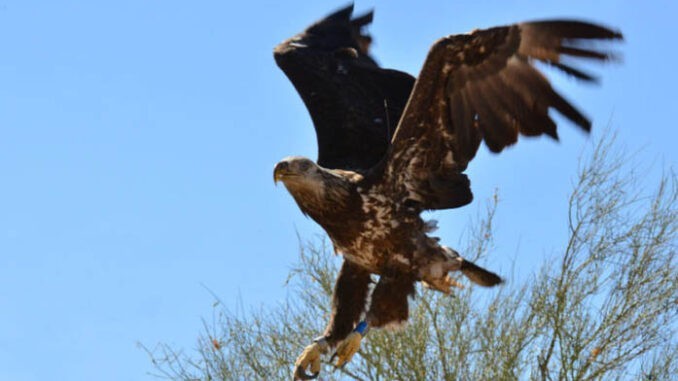
The desire to connect with the outdoor world runs deep in my family. My grandfather owned a farm in Mexico, where my father and his brothers worked the land daily. My mother grew up in Guatemala, surrounded by green trees, quetzal birds, and volcanoes. When my parents reminisce about their childhoods, their favorite stories all happened outside.
Like them, my daughter is happiest in nature. She gets excited about ringtail cats, listens intently for coyotes, squints to spot hummingbirds, and takes careful, quiet steps like a mountain lion. We love to explore the habitats of the species we love, and it would be a travesty to lose the wildlife that has existed in these spaces since time immemorial.
However, the future of the natural world as we know it is at risk. Internationally, more than one million species are at risk of extinction in the next few decades. Birds in North America have declined by nearly 30 percent since 1970—today, three billion fewer birds fill our skies. More than one third of wildlife species of all types in the U.S. are at a heightened risk of extinction. At risk species in Arizona include the Apache trout, the Sonoran pronghorn, Gila monster, Prairie falcon, Chiricahua leopard frog, roundtail chub, and the Arizona treefrog.
All of these creatures fill a particular niche in the whole system. For example, Arizona’s Apache trout eats insects and other small aquatic life and is in turn eaten by birds and mammals. But the Apache Trout is already struggling, in part because increasing temperatures are drying out its streams and the forests surrounding them.
Luckily, Arizona legislators are leading the way in championing a solution. A bill in the House called the Recovering America’s Wildlife Act will provide $1.4 billion in funding to prevent wildlife from becoming endangered, galvanizing locally-led wildlife conservation efforts. If passed, it will be the most significant wildlife conservation legislation in decades.
The Arizona Game and Fish Department would receive close to $30 million annually. The bill would also fund conservation efforts by the tribal nations—a particular boon to Arizona where more than a quarter of the state’s lands could benefit.
Representative Grijalva, the chair of the House Natural Resources Committee, recently got the bill passed out of his committee with a strongly bipartisan vote. Representatives Gallego, Kirkpatrick, O’Halleran, and Ruben are also cosponsors. I urge all of Arizona’s representatives, from both sides of the aisle, to join them in backing this commonsense bill.
Some of the money will be used to increase opportunities for Americans to get outdoors and learn about wildlife. In an era when many of us spend too much time inside and looking at devices, this legislation will help us create outdoor memories we can share with our own grandchildren.
Like my own family, many Latinx people have deep connections to the land and to nature. Legislation that will support community-led conservation efforts, like the Recovering America’s Wildlife Act, will help us raise our voices to create a better world for future generations.
Viviana Reyes is an advisory board member of HECHO (Hispanics Enjoying Camping, Hunting, and the Outdoors) and the member engagement manager for the Latino Community with Girl Scouts—Arizona.
